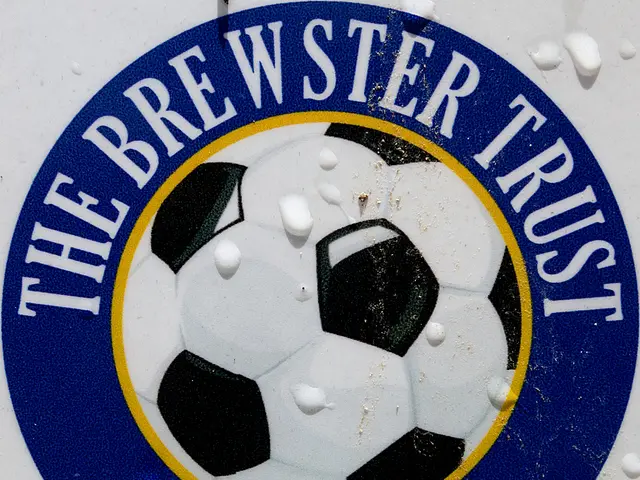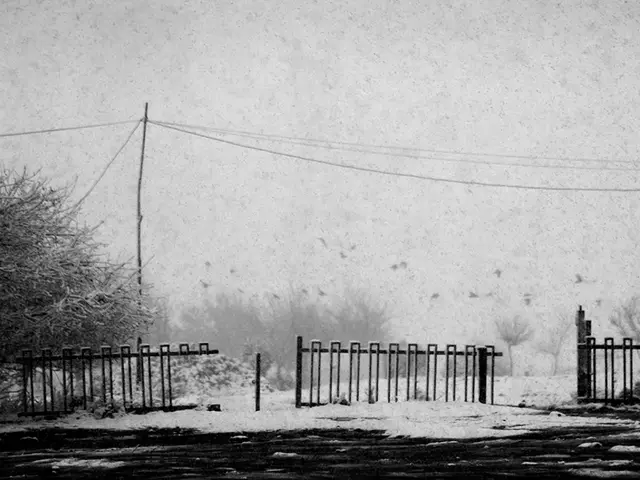First-Time Politician Outshines Pierre Poilievre's Campaign in His Constituency
A Shocking Election Upset:
Bruce Fanjoy, an ordinary home dad faced off against Pierre Poilievre, the Leader of the Conservative Party, and snatched a monumental victory in the Carleton electoral district, securing over 4,300 votes more. This unanticipated win spelled the downfall of Poilievre’s 20-year reign as the MP for Carleton and inflicted substantial damage on his plans of becoming the Prime Minister.
A Campaign Grounded in Positivity:
Fanjoy attributed his campaign's success to its positive and hardworking nature, a stark contrast to Poilievre's political style. “We ran a positive campaign," he told Politico Magazine. "We attracted a small army of volunteers, and as the campaign unfolded, more people were drawn to what we were doing." Fanjoy’s dedication to his constituents was evident in his relentless door-knocking efforts, which started as early as 2023. “I wore through two pairs of sneakers and a pair of boots," he recalled.
A Swing of Public Opinion:
The turning point in the campaign came when Donald Trump's threats against Canada began escalating. “There was a sea change at the doors," Fanjoy said. "Canadians recognized we were heading towards another U.S. administration led by Donald Trump, and some of his hostile rhetoric towards Canada, our economy, and our political sovereignty." As a result, this shift in sentiment combined with Poilievre’s perceived absence from the riding, ultimately sealed his fate.
Dedication and Complacency:
Fanjoy attributed his success to his team's tireless efforts and Poilievre's complacency. "We outworked him," he said. "We were present, we were all over the riding, and we connected with the voters. People appreciated that we were present, and we offered them a positive alternative to Pierre." Fanjoy noted that Poilievre's absence from the riding was a significant factor in his defeat. "In Carleton, Pierre barely showed up," he said. "After having been MP for so long, he took the riding for granted, and nobody likes to be taken for granted."
A Newcomer with Values:
As a novice poltician, Fanjoy remains committed to his values and principals. "I know who I am, and I'm going to be true to my values," he said. "I grew up playing competitive sports, I had a career in the private sector, so I understand the meaning of competition." Fanjoy’s victory is viewed as a rebuke of Poilievre's leadership style and rejection of his conservative ideologies.
A Referendum on Leadership:
"It's very clear that Canadians want responsible leadership," Fanjoy said. "They want serious leadership, and this is not the time for flirting with the politics we're seeing down south." With the Liberal Party now forming a minority government, Fanjoy expects the party to govern with integrity and focus on the best interests of Canadians.
Takeaways from Fanjoy's Victory
- Poilievre's leadership ambitions were dealt a significant blow with his defeat in the Carleton riding.
- The Conservative Party is faced with questions about its leadership and strategy after Poilievre's loss, which signaled a shift in public opinion towards conservative politics.
- Fanjoy's victory in the Carleton riding indicates a shift in Canada's political climate, where traditional conservative strongholds may no longer be safe for incumbents.
- The Conservative Party may need to rethink its approach, focusing on community-centric policies and addressing the perceived absence of leaders from their constituencies.
- Fanjoy's win signals a move towards governance by the Liberal Party that emphasizes cross-party cooperation and the implementation of balanced and inclusive policies.
- The Liberal Party, with its strong commitment to community engagement and responsiveness to local needs, is keen on governing with principle in the best interests of Canadians under their minority government.
- Bruce Fanjoy's victory in the Carleton riding marked a substantial blow to Pierre Poilievre's aspirations for becoming the Prime Minister.
- The Conservative Party is currently grappling with questions regarding its leadership and strategy, as Poilievre's loss in the election could indicate a shift in public opinion towards conservative politics.
- Fanjoy's victory in a traditionally conservative stronghold suggests a potential change in Canada's political landscape, where established incumbents may no longer find safety.
- The Conservative Party might need to reassess its approach, focusing on community-centric policies and addressing the perceived absence of leaders from their constituencies to regain support.
- Fanjoy's win signals the beginning of a period of governance by the Liberal Party that emphasizes cross-party cooperation and the implementation of balanced and inclusive policies.
- The Liberal Party, guided by its strong commitment to community engagement and responsiveness to local needs, aims to govern with principle in the best interests of Canadians under their minority government.
- In light of unpredictable events such as war-and-conflicts, migration, car-accidents, fires, crime-and-justice, general-news, and economic instability, the Liberal Party's focus on political integrity and responsive governance could prove to be a pivotal factor in their success.








